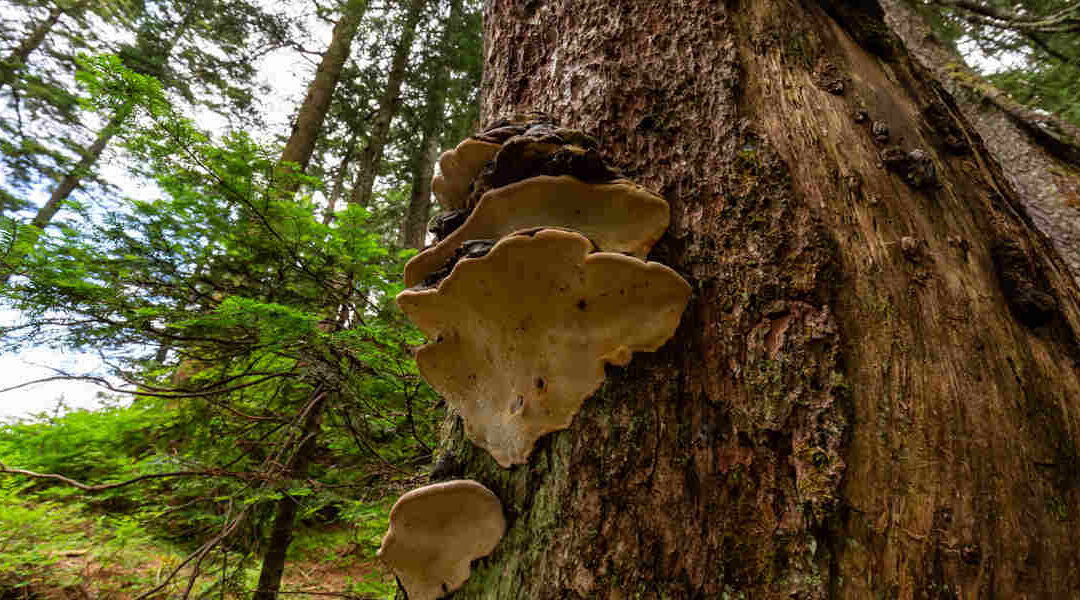If you have trees in your yard, then tree fungus is an ever-present possibility. Fungi are not only an eyesore but are also particularly dangerous because they break down cellulose, the main connective tissue of trees. This article will cover some tips on how to identify tree fungus and different strategies for fungal treatments.
Contact Tri-State Tree Service to schedule professional tree service in Mobile, AL.
Common Types of Tree Fungi and Their Identifying Features
Below are some of the most common types of fungi and some key identifying features. Infections can quickly spread to and kill healthy trees, so it’s in your best interest to identify tree fungus and contact an arborist ASAP if you find any fungi.
Oak Wilt
Oak wilt is a fungal infection that causes tree leaves to wilt, turn brown, and fall off branches. Despite the name, oak wilt can affect most types of trees and is primarily spread via sap beetles. Oak wilt is most common in the spring and summer and quickly spreads from infected to healthy trees, so you need to remove the affected branches and dead leaves quickly.
Mildew
Mildew appears as a powdery white substance that grows on leaves and branches. Mildew is a foliar disease, so the fungus attacks healthy leaves so they cannot produce nutrients through photosynthesis. Mildew usually doesn’t affect tree mortality much and often goes away on its own after some time, but it can negatively affect your tree’s appearance and spread to other vegetation if you don’t remove the infected leaves.
Anthracnose
Anthracnose is another very common foliar disease that causes leaves to dry out, curl, and start browning. You can tell a fungus is anthracnose due to the characteristic purple-rimmed blotches it creates on leaves. Anthracnose is harmful and can kill healthy trees if left unmitigated. Anthracnose-infected leaves also make insect infestation more likely and other trees can catch the fungus from dead leaves carrying the spores.
Leaf Spots
Leaf spots appear as small brown spots and rings across leaves. Most cases of leaf spots are caused by fungal infections and can be treated with antifungal treatments, though some are caused by bacteria and insect infestation.
Root Rot
Root rot is an infection of the roots and causes all types of systemic problems, including dead branches, discolored leaves, bark lesions, and stunted tree growth. Root rot may also cause large fungal growths and mushrooms to sprout from the base of your trees. Root rot infection is often a result of overwatering trees, so you can prevent it by ensuring proper drainage and setting up a water drip line.
Tree Fungus Treatment and General Arborist Services
We can answer all sorts of questions, from, “How can you identify tree fungus?” to, “Do tree roots die after stump grinding?” If you have any further questions about how to identify tree fungus or would like to schedule arborist services, contact Tri-State Tree Service online or give us a call today at (850) 876-8003!


